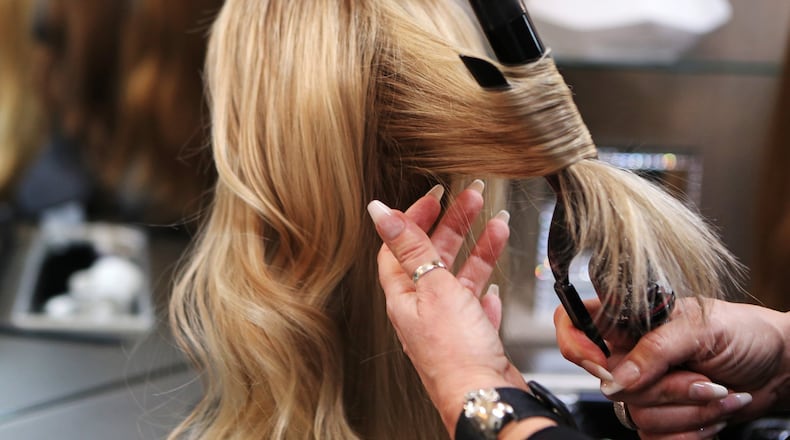Every year, cosmetology suppliers from around the world come to Atlanta for the winter Bronner Brothers International Hair Show.
At the February show, however, a few were missing.
Fifteen vendors from China, nearly all selling human or synthetic hair, were unable to enter the United States after travel restrictions were put in place in efforts to halt the spread of the new coronavirus, which has sickened more than 80,000 people in the Asian nation alone. China, where the virus was first detected, is a major supplier of hair extensions, lashes and other beauty products.
Indeed, the coronavirus is not just having an impact on travel and large gatherings, but the business of looking good, too.
“We had other vendors who were scared to exhibit if they were going to be there, so we kind of had it from both sides,” said James Bronner, the show’s director.
The U.S. imported $1.04 billion in wigs, false beards, eyelashes and other hair products in 2019 from China, according to the Georgia Department of Economic Development. Georgia is the third-largest importer in the nation of these products from China.
Related: Taliah Waajid's World Natural Hair Show Postpones event
The next Bronner Brothers show is in August at the Georgia World Congress Center.
“We are hoping and praying it will be contained by them,” said Bronner. “We can source from other places as well, so hopefully, it won’t clog up the pipeline.”
Others in the beauty business are feeling the effects now or fear there could be a cog in the flow of weaves, fake eyelashes, cosmetics or styling products that have components made in Asia.
The Natural Products Expo West, for instance, recently postponed its big show in Anaheim, California, after people expressed concerns about the virus.
Organizers say they expect to have a new date soon, perhaps in April. More than 3,600 companies and 86,000 industry professionals were expected to attend.
And Atlanta salon owner Najah Aziz, of Like the River Salon, was already in New York to speak at the Beauty Experience NY and International Esthetics, Cosmetics and Spa Conference when she was notified that the event was canceled.
Shows like this are “huge” for the industry, said Aziz. “It’s where we learn the latest trends in the industry. You get to buy and sell products. Everything is at discounted prices if you have a license, and products come from everywhere.”
COVID-19, which has been reported in more than 114 nations and killed more than 4,000 people, has now been declared a pandemic by the World Health Organization.
So what does that mean for people like Rebecca Walden, owner of Rebecca Walden Wig Studio in Sandy Springs?
Walden customizes wigs for women and children who have gone through chemotherapy, trauma, alopecia or hormonal changes that have resulted in hair loss.
She buys her wigs, which are made in China, from several U.S. distributors.
“I just got a call today that ‘If you want anything, better get it now, we just closed our factory.’ Another one,” she said Wednesday.
More: Here's what you need to know about the coronavirus
Currently, she has plenty of stock. What has taken a hit is her credit card. She racked up about $30,000 in charges to buy wigs before it became a problem to get them. She bought some of her suppliers’ entire inventory. “Thank God, I did. Everybody’s freaking out now.”
Tess McDaniel, manager of Hair Fetish Atlanta in Riverdale, said the business has not been affected because they order directly from a supplier in a region of China so far not hit by the coronavirus.
She has a plan, though, if things get worse.
“We’re trying to get everything now and just sit on it,” said McDaniel. “We’re stocking up. Anybody that runs a business, whether it’s clothing, hair or anything and you get stuff from over there, it can affect you.”
The concerns, though, are not just about supply, but about the well-being of salon stylists and workers as well.
Aziz, for instance, recently emailed her clients asking them to stay home if they felt sick and to go to their doctor.
The salon just got a supply of facial masks that her stylists may start using.
“We’re in such close contact with people,” said Aziz. “When you’re washing someone’s hair, you’re face to face.”
Aziz said she had a client who said her husband has recently returned from China. Although he did not go to Wuhan, some of his co-workers did.
That makes Aziz nervous.
“I’m like, really?”
About the Author







